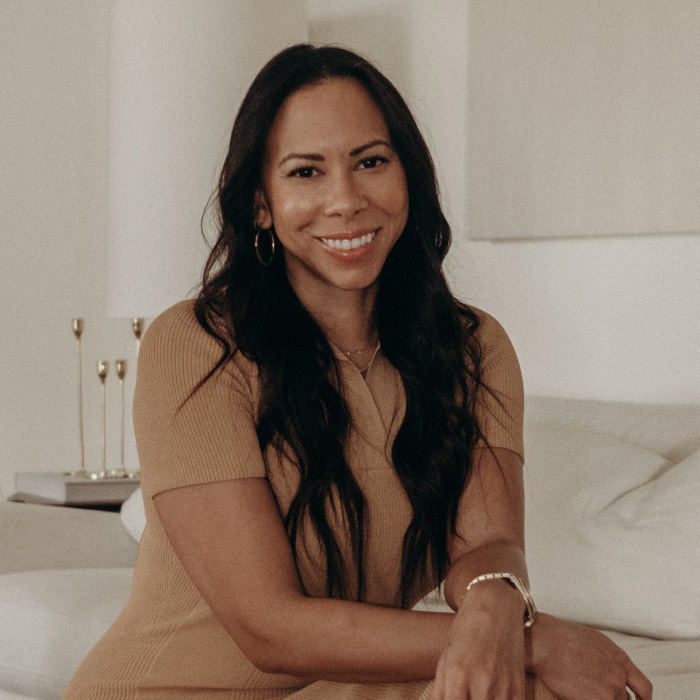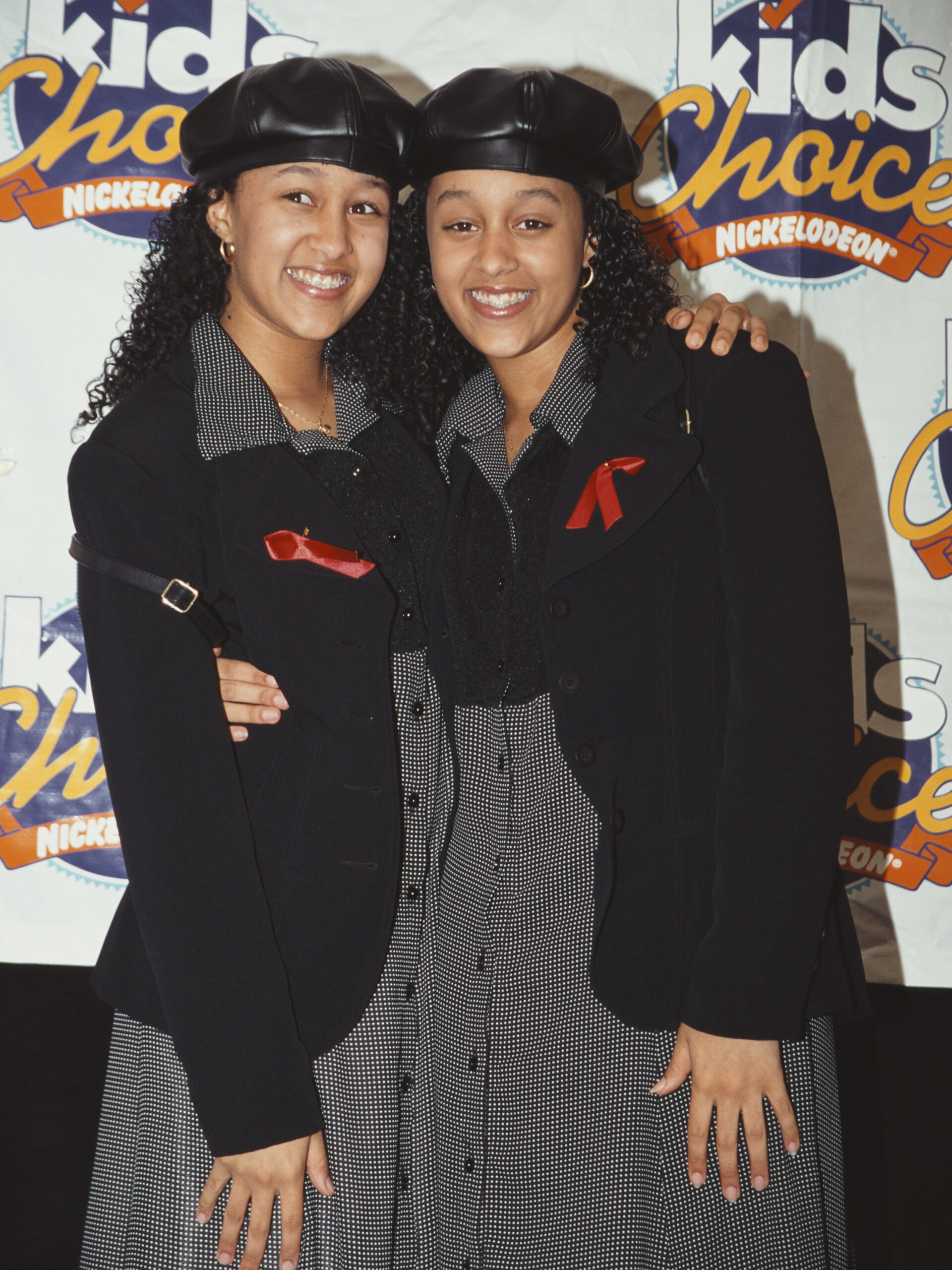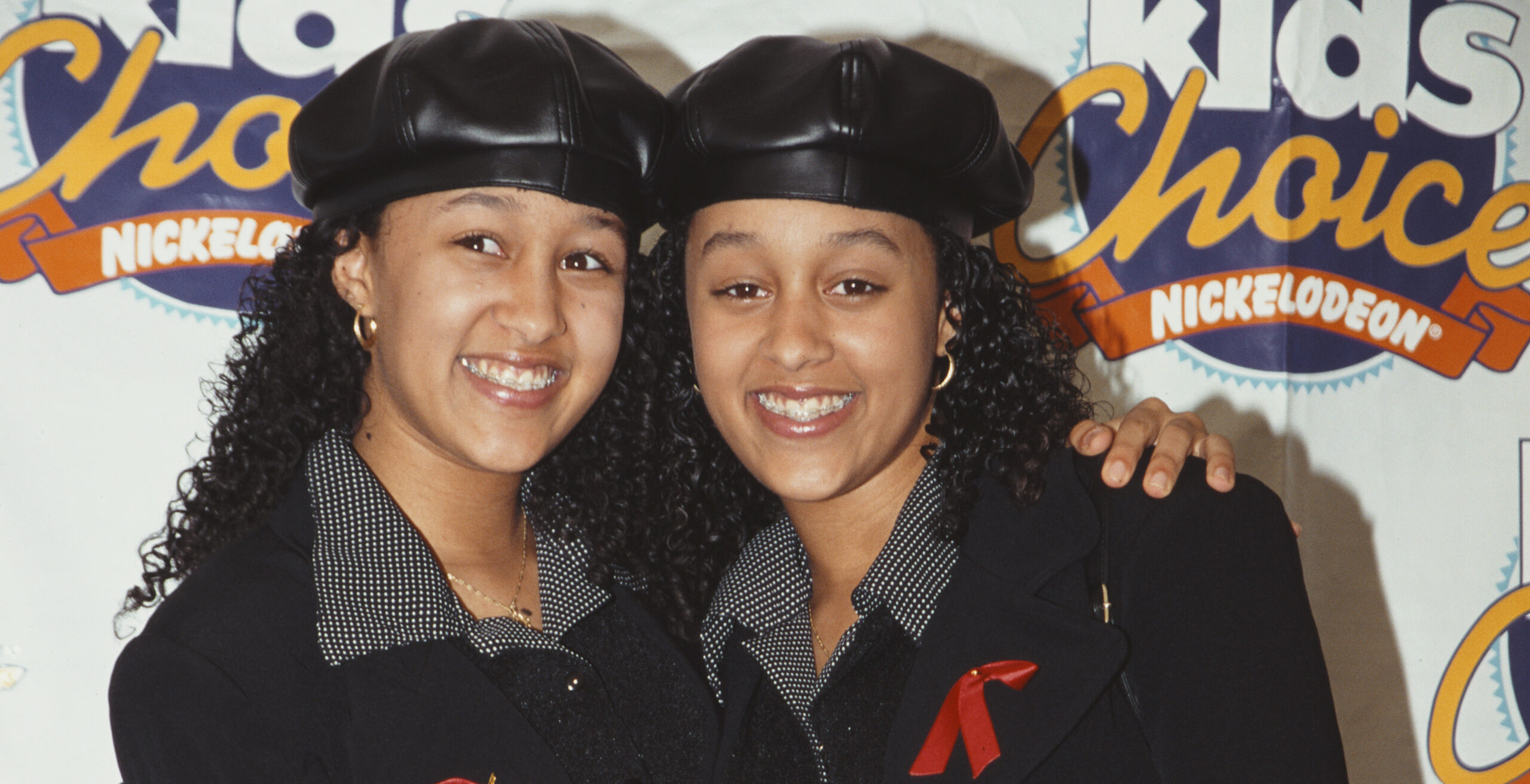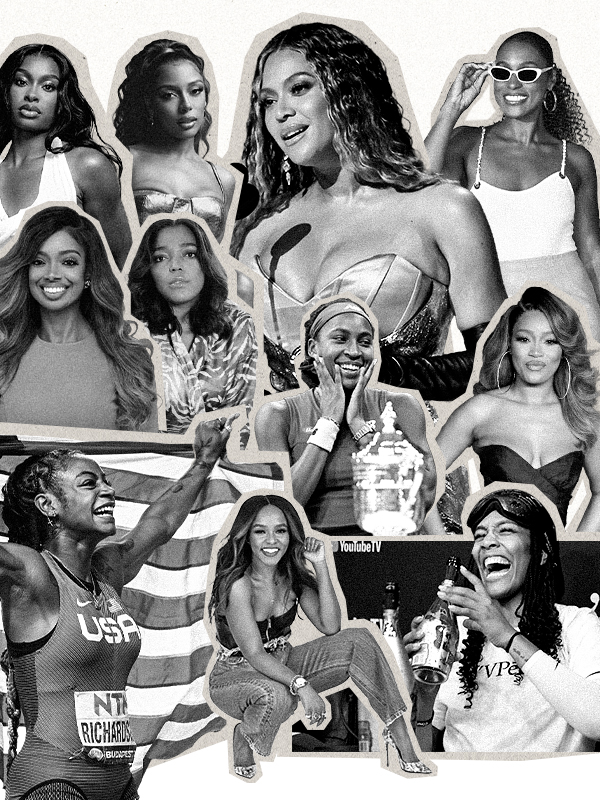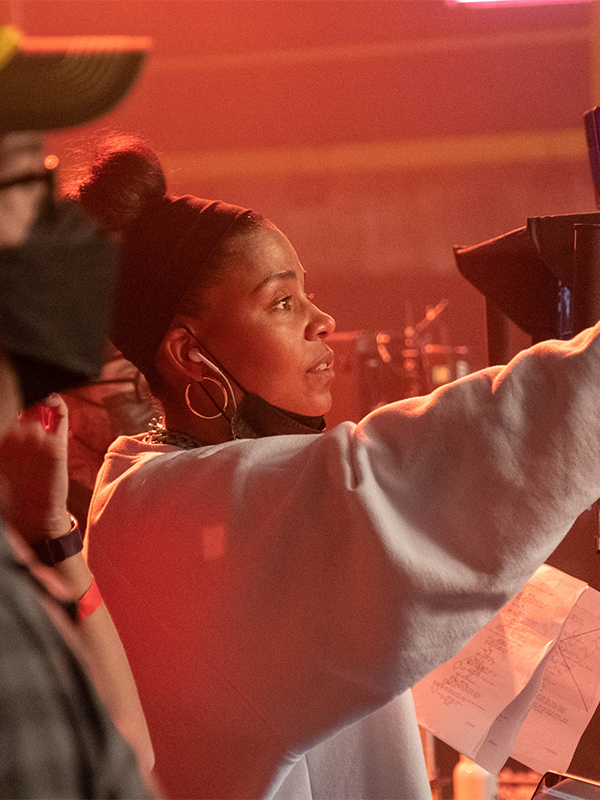The phrase “Black people are not a monolith,” hits differently when we think of how unique our households are. That’s why it’s imperative to have a range of media that reflects all facets of this experience.
In the ever-evolving landscape of television and film, the portrayal of familial relationships has become a powerful mirror, reflecting the diversity and intricacies of our connections. As new narratives continue to unfold on screens both big and small, it is crucial to celebrate how these works are setting new standards and challenging harmful stereotypes.
And while there is still room for improvement and growth, Sweet July honors the work that has been done, past and present, to honor the Black family experience.
Black Mafia Family (2021-Present): When “Keeping It All In The Family” Goes Awry
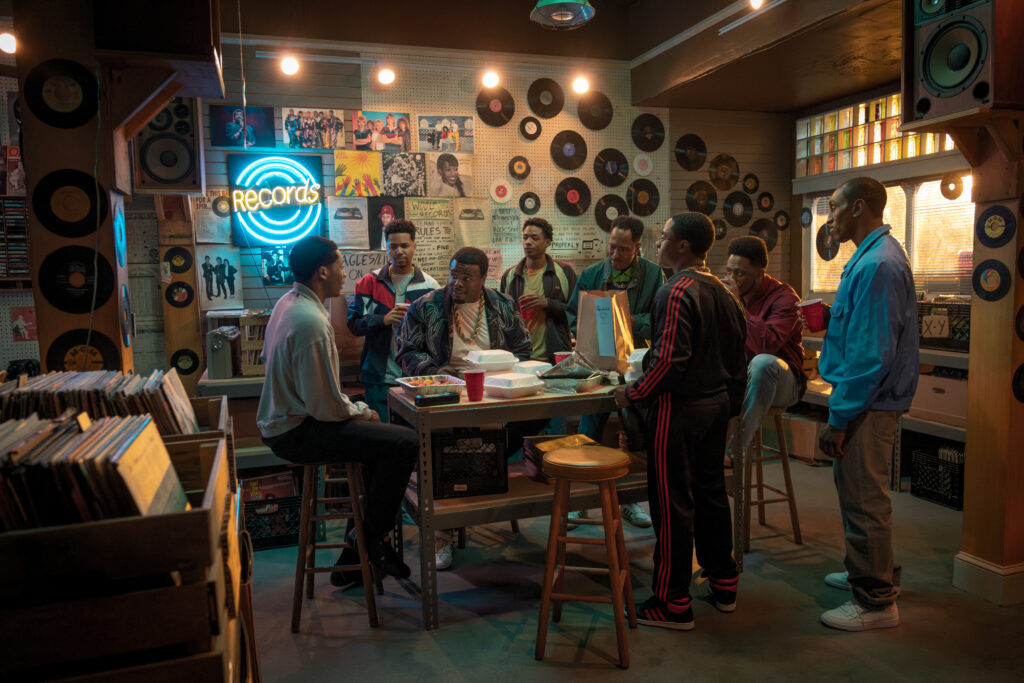
In the BMF series, the exploration of the Flenory brothers’ street business, the concept of the “nuclear” family, and its highs and lows, takes center stage.
“I think in any kind of crime drama that you haven’t seen a family like this,” Michole Briana White, who portrays Lucille, the matriarch of the Flenory family, tells Sweet July. “It’s important to note that these boys come from a spiritually-rooted family. We’ve given them the best that we can, but the reality is, outside our front door, there are limited options for them to be as great as we want them to become. But I think that is a different twist on stories like these—[seeing] that they come from Black love.”
“I know some people say, ‘Oh, it’s a drug dealing show,’ but it also is very much about a strong family,” says Sydney Mitchell, who plays LaWanda, Terry’s girlfriend and mother of his children.
A prime example of this happens in the first season, during episode seven, “Keeping It All In The Famiy,” when Nicole (Laila Pruitt) consults with her family on whether or not she should lie to the police to keep her brothers safe.
Pruitt commends the series’ commitment to showcasing the nuances and duality within the Black family. “All of our characters are extremely human, from the villains to the heroes,” she says. “I think it’s an important way to watch a Black family.”
The Wonder Years (2021-2023): Strengthening Brotherly Bonds
In this reboot of the ABC show The Wonder Years, the relationship between Dean Williams (Elisha “EJ” Williams) and his older brother, Bill Williams (Spence Moore II), defies the challenges often associated with a significant age gap between siblings.
Williams reflected on how this unique dynamic forced him to think about his real-life sibling role. “In my own life, I’m the middle child with an older sister and a younger brother,” he tells Sweet July. “Being the youngest out of three as my television character gave me a new aspect of how I should treat my siblings.”
In “Home For Christmas,” season one, episode nine, Bill returns home after serving in the war in Vietnam, and Dean becomes deeply concerned about his brother’s mental well-being. Discovering that Bill has reenlisted in the army devastates Dean, so he leads an anti-war protest at the local recruitment office. Dean later realizes that it’s more important to focus on what he can control, which is the irreplaceable time spent with his brother.
“I don’t recall it originally being scripted,” reveals Williams, referring to the scene after the protest when Dean returns home and embraces his brother. “Me and Spence have a great relationship in real life, and I think it definitely showed on screen.”
He adds, “It shows how important brotherhood is. If our goal is to make a beautiful heartwarming scene, then we have to connect on another level.”
Fantasy Football (2022): Setting Family Boundaries
Having to parent your parents is hard work, but someone has got to do it. Callie Coleman (Marsai Martin) gets a taste of this when she’s able to control her father’s real-life moves on the football field as an NFL player through her Madden video game, following a freak accident involving lightning.
It’s a match made in heaven, until her dad, Bobby Coleman (Omari Hardwick), takes things overboard, causing Callie to miss out on the day-to-day activities of the average child for the sake of his career. The film is a powerful display of setting boundaries with your parents and how a simple conversation (when accepted by the person on the receiving end) can make all the difference.
This Is Us (2016-2022): Beth and Randall Pearson Welcome Their First Child
NBC’s This Is Us touched the hearts of audiences for six seasons, skillfully portraying a nontraditional but loving family. Susan Kelechi Watson, who portrayed Beth Pearson, expressed a commitment to depicting the Black familial experience. “I always wanted to start from a place of real truthfulness,” she tells Sweet July. “Our weekly goal was to just be honest and live in truth so that we could show the real reality of our lives.”
In a pivotal season two, episode six, “The 20s,” Beth and Randall (Sterling K. Brown) prepare for their first child. Randall’s anxiety becomes a focal point, hindering his emotional support for Beth. Reflecting on the episode, Watson noted how accurate this is in capturing the mix of excitement and stress during such a significant life transition.
As much as the show focuses on family dynamics, Watson also commends This Is Us for creating such layered characters like Beth, showing that women are much more than their familial roles. “It’s just so important for women to feel seen… people forget that they’re just also a woman and an individual human being with their thoughts, hopes, dreams, and aspirations.”
That’s So Raven (2003-2007): Raven Gets A Glimpse Of Another Side Of The Family
Raven Baxter (Raven-Symoné), the main character in That’s So Raven, takes a trip to end a long-standing family disagreement over a gravy boat and soon discovers that the life she’s lived in San Francisco is nothing like that of her kinfolk from the South. From maintaining the farm to their southern drawl and beyond, Baxter realizes that there’s a whole different side to her family than what she’s been accustomed to.
What makes these “Country Cousins” episodes (the 27th and 28th in season three) so special is the reminder that sometimes generational traumas stem from the most trivial things. Often it’s the kids who best understand how to bring the family back together in the end.
Half & Half (2002-2006): Nothing Comes Before The Family
Sibling relationships can be tough. In Half & Half, paternal half-sisters DeDe (Essence Atkins) and Mona (Rachel True) develop a close but complicated relationship after being estranged for most of their childhood.
A little friendly (or family) competition never hurt anybody, but in season five, episode three, “Keep Your Eyes Off My Prize,” the sisters go a little too far. It comes by way of their mothers who push the girls to go toe-to-toe for the attention of a man (this was pick-me energy before it had a title). Ultimately, DeDe and Mona decide that no one, especially a man, should ever come between the ever-evolving sisterly bond that they’ve been creating as they navigate adulthood.
Bernie Mac (2001-2006): When Times Get Tough, Family Is “Here To Stay”
The Bernie Mac Show is revered for many reasons, one could argue that a huge contributor is the fact that the series is loosely based on the life of the late Bernie Mac, who took on raising his niece after his sister was unable to due to drug abuse.
In the season one episode, “Here To Stay,” Mac realizes that taking in his sister’s children, Vanessa (Camille Winbush), Jordan (Jeremy Suarez), and Baby Girl (Dee Dee Davis), isn’t a temporary situation. This episode sets a major tone, with a storyline and leading character many Black viewers had never seen before. Men rarely show emotion, especially not on prime-time television, and while Mac is resistant at first, he soon treats and raises the three children like they’re his own. This chosen patriarchal role felt groundbreaking.
Next Friday (2000) : We Don’t Play About Our Cousins
Black people don’t play about their cousins. Not even the “play cousins” are to be messed with—the entire Friday franchise is proof of this. The second installment, Next Friday, really doubles down on this particular familial bond.
When Craig (Ice Cube) first goes to live with his Uncle Elroy (Don Curry) and cousin Day Day (Mike Epps), his irritation is visible, but that all changes when he learns that they’re in danger of losing their home.
Thanks to them putting a plan into action, never turning their back on one another, and succeeding at keeping their home, the relationship between Craig and Day Day strengthens and proves just how colorful and exciting having cousins can truly be.
Soul Food (1997): Dealing With Grief
Nothing screams family drama like the death or illness of a loved one. In the case of the film Soul Food, that person is the matriarch of the family, a huge loss many Black viewers can relate to.
When Big Mama gets sick, everyone finds themselves in a frenzy, trying to keep all of the things she kept afloat, but things start to go awry. There’s one particular scene—yes, the one where Terri (Vanessa Williams) pulls out a knife and threatens her cousin—that is forever etched into the brains of all who watched. The realness is palpable. It’s a realistic depiction of the pressure that comes with important family decisions and the aftermath of a family tragedy.
Sister, Sister (1994-1999): Unpacking The Dynamics Of Sibling Love
In Sister, Sister, identical twins Tia Landry (Tia Mowry) and Tamera Campbell (Tamera Mowry-Housely) spent over a decade apart until their adopted parents decided to co-parent them under one roof. Reflecting on the iconic show, Mowry-Housley acknowledged its unexpected impact. “I had no idea that Sister, Sister was going to have the impact that it did,” she tells Sweet July.
Mowry-Housley emphasizes that, at the time, she and her sister were mainly focused on pursuing their acting dreams in a way that felt most authentic to them. That seemingly worked in their favor. “That’s the best way to become someone that people look up to… to be yourself.”
The episode titled “A Separate Peace” explores the twins’ desire to experience life independently. But quickly after their request for separate rooms is granted by their parents, they yearn to be close again.
Mowry-Housley adds, “It’s natural to want to ask those questions of ‘Who am I even though I’m a twin? What is my purpose in this world?’” The sisters, who now have families of their own, have needed to navigate these challenges of individuality in real life.
“There isn’t a day where I don’t express gratitude for the impact I was able to make on the culture alongside my twin,” says Mowry-Housley, especially since there has yet to be another series solely centered around Black twins.
This feature is part of The Village Issue. Read more about the gamut of our most cherished relationships here.



